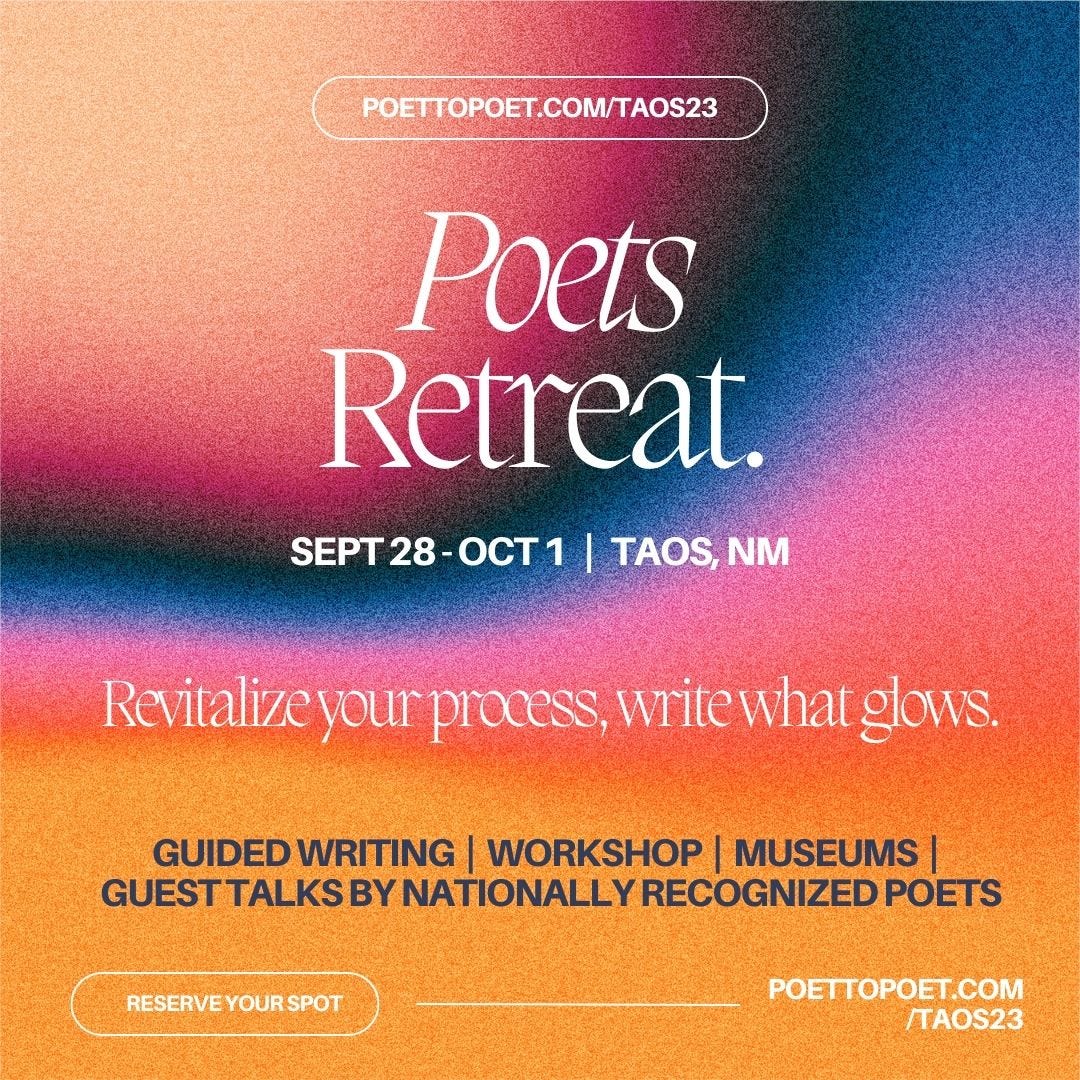Knowing When to Stop
Finding the sweet spot between giving up too soon and endlessly tinkering.
Photo by Joshua Hoehne on Unsplash
In July, The Poets Circle (Poet to Poet’s member community) met to discuss completion. How do we reach a sense of “completion” in single poems and, perhaps even more challenging, in books and longer bodies of work?
After all, poetry is deeply iterative. As Ocean Vuong says, a poem or a collection is never truly done because we ourselves are constantly evolving.
So how do you know when it’s complete enough?
Some poets use forms as guardrails for completion. These days, most of us don’t. Even within formal constraints, there are endless tweaks that can be made. So Poets Circle members use these strategies:
Read the work aloud. Bonus if you have a live audience, but even imagining one can help. One writer said she imagines “stepping off the podium after reading the poem … do I feel proud of the piece?”
Share the work with trusted others. As I’ve said before, it’s not helpful to let others’ opinions overshadow our own intentions and intelligence, so please don’t depend on others to say when something is done. But it is, nevertheless, extremely helpful to have trusted readers for feedback.
Send it out for publication. A critical filter (wise, not unkind) can kick in when preparing a piece for potential publication. Writers in the Circle say they make polishing edits this way.
Does it feel done? I experience a visceral sensation when I’ve reached a version that I like well enough to live with. I don’t know how to describe it other than it feels alive.
Fast or slow: Your default setting
As one community member pointed out, our neurological wiring probably plays into how we approach completion. Do you tend to start a lot of things and struggle to finish them, or do you start very few things and try to perfect every last detail of each draft? Are you an exuberant starter or a slow perfecter?
If you’re an Exuberant Starter, find external writing supports that help you focus—revision-focused workshops, trusted readers/mentors who increase your interest in finishing the work, who will ask you “Hey, how’s that chapbook coming along?” etc.
If you’re a Slow Perfecter, like me, try giving yourself permission to enter new territories before you’ve completed earlier work. Seek external supports that help you move through the process—generative sprints, workshops, trusted readers and mentors who can point to what is working, what doesn’t need tinkering.
Never done—but it’s OK to let go
There are milestones that require yet another look. Publication, for instance. New contexts require new choices, configurations. I’m working on a long-term project right now that—so close to existing in a more permanent form—requires yet more iteration.
Eventually I’ll have to let it go and let it be in the world—and be OK with whatever choices I’ve made up to that point. To do anything less would be unkind to myself and and a disservice to the new work I’ve already begun.
How do you know when to call it “done”? Share in the comments.
Upcoming Events / Poet to Poet Community
The Poets Circle: Drop-in Conversations
AUGUST: What About Audience?
Aug 16, 12-1pm MT
How much do we consider audience while we're writing? How much should we consider it? Should we consider it at all?
SEPTEMBER: Social Media & Promoting Work
Sept 6, 6-7pm MT & Sept 20, 12-1pm MT
How do authors use social media to promote work? Is it necessary? Do poetry publishers look for authors will social media platforms? What are the alternatives to social media if you're not a fan of social platforms?
Fall 2023 Poets Retreat in Taos—only 4 spots left
This fall, join practicing poets for creative renewal in Taos, New Mexico. Enjoy three full days of guided writing, art tours, daily workshops, and guest author talks by nationally recognized poets. Space is limited. Learn more and reserve your spot at the link below.






I love what you have said about your poem feeling Alive, when it is done. So true!
Finding that sweet spot - the ending is where I continuously tinker! Returning & eventually it takes a new life. - thanks for posting. ✍️